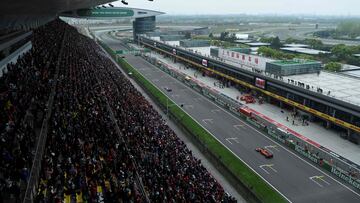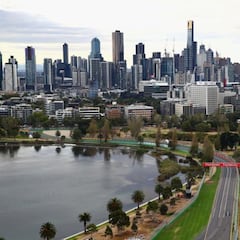Why do Chinese organizers want a second race in the F1 calendar? Where will it be held?
The number of races on the Formula 1 calendar has increased to a record-breaking 24, leading to a larger pool of potential race locations.


Formula 1 and Liberty Media have recently announced new races in Miami and Las Vegas, strengthening their presence in the United States. However, it appears that their focus is now shifting back to Asia.
Reports suggest that China, which hasn’t hosted a Formula 1 race since 2019, is eager to add another race to its schedule. Currently, Shanghai hosts the only Chinese Grand Prix, held annually since 2004 and contracted to continue until 2025. Unfortunately, the COVID-19 pandemic canceled the event in 2020, 2021, 2022, and 2023. Nevertheless, Chinese organizers are planning to construct a second runway in Guangdong, 1,200 kilometers southwest of Shanghai, which could potentially host a race in the future.
🏁 Chinese GP
— BWT Alpine F1 Team (@AlpineF1Team) April 14, 2024
📍 Shanghai International Circuit
🗓️ 21/4/2024
WE 🙋♂️ CAN’T 🙋♀️ WAIT! 🙌 pic.twitter.com/WCrDW0WS5k
The car manufacturers and global companies participating in Formula 1 have expressed a keen interest in expanding their presence in China. However, the current format of the races held in Shanghai (until 2019) failed to attract a substantial number of spectators. Therefore, a more suitable formula must be devised to make the sport more appealing to the Chinese audience.
Korea as a potential candidate
Related stories

Toto Wolff’s wish list
In the Asian region, South Korea is also being considered a potential location to host Formula 1 races. The city of Incheon, which is located close to Seoul’s capital, has shown interest in hosting the competition.
South Korea has already hosted four races between 2010 and 2013. Fernando Alonso won the first race, while Sebastian Vettel emerged victorious in the subsequent three. The mayor of Incheon has expressed that “serious negotiations” with Formula One are underway. The city boasts excellent transportation infrastructure and many luxury hotels, which would make it an ideal host for the event. If Formula 1 does choose to move its races to Incheon, it would provide a valuable boost to the city’s economy. It could also help to raise the sport’s profile in South Korea and attract a new generation of fans.
